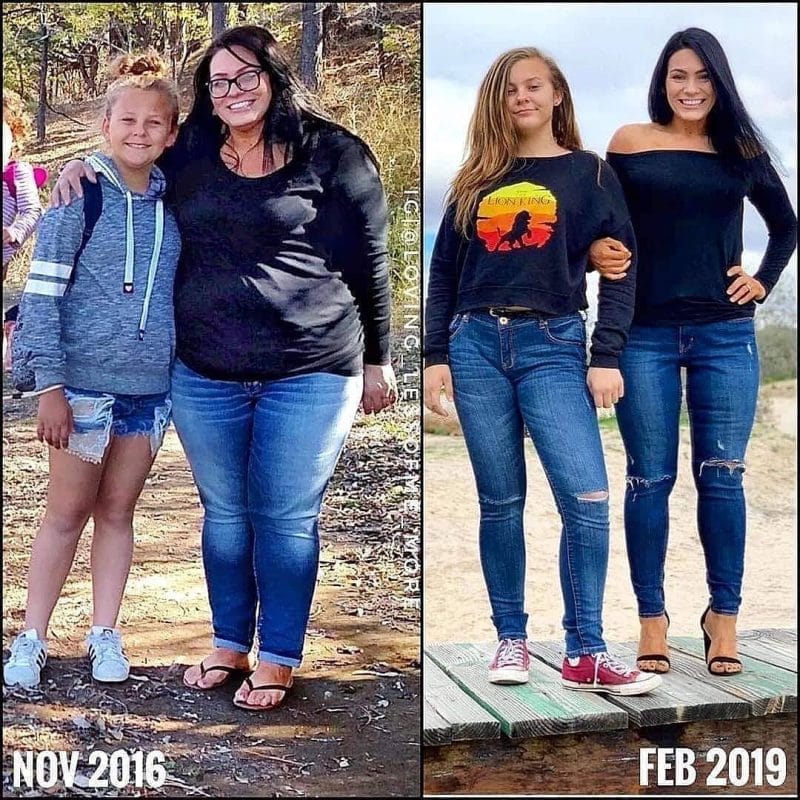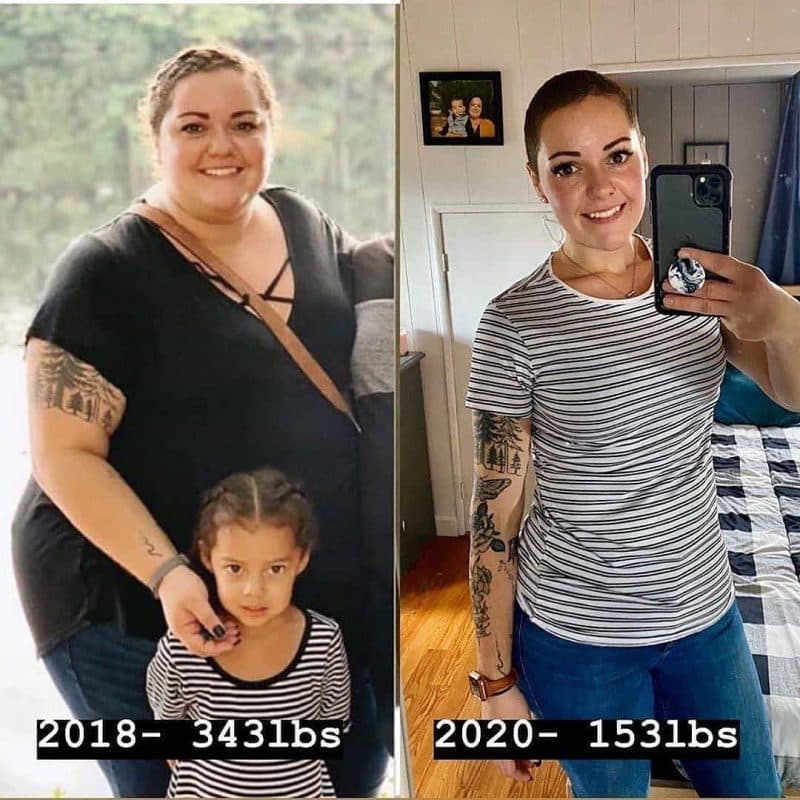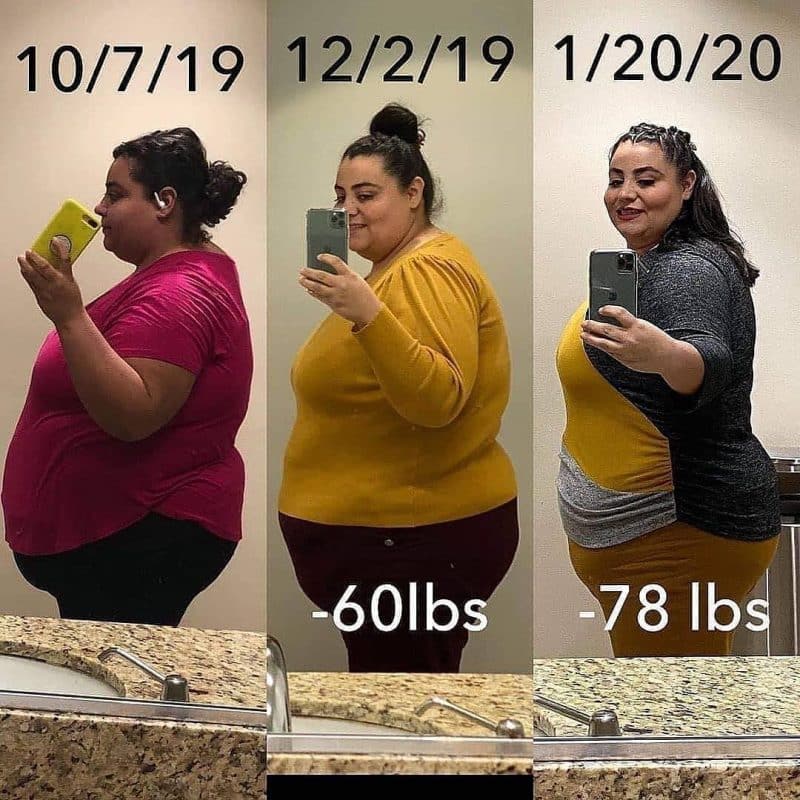You may have seen some incredible hcg before and after photos showing dramatic weight loss results circulating online. But does the HCG diet actually live up to its rapid weight loss claims? This article takes an in-depth, unbiased look at the evidence behind the hcg protocol. We’ll explore the science behind those viral hcg before and after pics and whether this controversial diet is safe and effective for health and sustainability.
Introduction
The HCG diet involves a very low-calorie diet combined with daily HCG injections or drops. The diet promises quick and significant weight loss of up to 1-2 pounds per day. Before and after photos of people who have lost a dramatic amount of weight on the HCG diet frequently circulate on the internet.
But how does this diet lead to such rapid weight loss results? And is it truly safe and sustainable in the long run? Let’s take a closer look at what the HCG diet entails.
How the HCG Diet Works
The HCG diet is based on a protocol developed by British endocrinologist Dr. Albert T.W. Simeons in the 1950s. Dr. Simeons hypothesized that combining a very low-calorie diet with daily micro doses of the hormone HCG would trigger fast weight loss.
On the HCG diet, people are typically restricted to just 500-800 calories per day. This is an extremely low amount that would normally cause muscle loss, headaches, and nutritional deficits. However, Dr. Simeons claimed the HCG would modify how the body metabolizes fat and spares muscle and structural fat from being broken down.
The daily micro doses of HCG are said to stimulate the hypothalamus gland, releasing stored fat into the bloodstream. This is meant to trigger ketosis, suppress appetite, and accelerate weight loss. The HCG injections or drops are continued throughout the diet to purportedly prevent muscle loss while on the very low-calorie diet.
The HCG diet is meant to be supervised by a trained medical professional to ensure safety and proper implementation. Proponents claim the extreme calorie restriction can lead to a loss of 0.5 to 1 pound per day, with typical rounds lasting 21-40 days.














The Three Phases of the HCG Diet
The HCG diet actually consists of three different phases:
- The Loading Phase
The first phase spans two days at the very start of the diet. During this time, individuals are encouraged to eat high-fat, high-calorie foods to “load up”. - The Weight Loss Phase
This is when the strict 500-800 calorie per day diet begins, along with daily HCG injections/drops. The weight loss phase typically lasts 3-6 weeks, with the goal of losing 1-2 pounds per day. - The Maintenance Phase
The last phase aims to reintroduce higher calorie levels while maintaining weight loss results. This phase lasts 3-4 weeks, with gradually increasing calorie amounts.
The loading phase and maintenance phase allow the body to ease into and out of the very low-calorie protocol. However, the weight loss phase consisting of just 500-800 calories per day remains highly controversial.
Personal Experiences with the HCG Diet
Mr. Garberich’s HCG Diet Journey
Mr. Garberich from About Face Anti-Aging Institute embarked on a 40-day HCG diet program. Without exercising, he lost 17.5 pounds, 93% of which was fat. He followed a specific meal plan provided by the clinic and underwent Bod Pod and Resting Metabolic Rate tests to measure his body fat and lean mass.

The Diet Program
- Duration: 40 days
- Weight Loss: 17.5 pounds
- Fat Loss: 16.2 pounds of body fat, reducing body fat percentage from 31% to 24%
- Exercise: None during the program
- Meal Plan: Specific plan provided by the clinic
Tests and Measurements
- Bod Pod Test: Measured lean mass and body fat percentage
- Resting Metabolic Rate Test: Determined calories burned at rest
- Results: 6.4% reduction in body fat, 93% of the weight loss was fat
Maintenance Phase
After completing the HCG diet, Mr. Garberich entered a three-week maintenance phase. A specific plan was provided to keep the weight off, including guidance on calorie intake to continue losing weight or maintain the current weight. He was given a target number for daily calorie intake and planned to start a workout program.
Conclusion
Mr. Garberich’s experience with the HCG diet was positive, and he found it not too challenging. He emphasized that the diet works and that he is living proof of its effectiveness.
Dana Halverson’s HCG Diet Journey
Dana Halverson used the medically supervised HCG diet to lose weight, shedding 54 pounds in seven months. She underwent two rounds of the HCG diet, with an eight-week break in between, even starting right before Thanksgiving.
The Diet Program
- Duration: Seven months, two rounds
- Weight Loss: 54 pounds
- Experience: Increased self-confidence
- Diet Details: Extreme low-calorie diet of about 500 calories a day, no carbohydrates, limited fruits and vegetables, seven ounces of protein
How the HCG Diet Works
- Metabolism Boost: Helps to increase metabolism to lose fat preferentially to muscle
- Preservation of Muscle: While losing abnormal fat, preserves muscle mass
- Medically Supervised: Safe and done under medical guidance, with HCG injected subcutaneously or taken sublingually
Before and After Transformation
- Visual Evidence: Photos showing significant transformation, weight loss in desired areas
- Typical Results: Dana’s case is considered exceptional, but most people lose weight in targeted areas without looking unhealthy
Group Session and Support
- Next Group Class: Scheduled to start, includes five appointments for $700, with HCG included
- Support Group: Meets twice a month, helps with maintaining weight loss
- Incentive: Lottery drawing for those who keep the weight off for six months, with a chance to get the investment back plus $100
Conclusion
Dana Halverson’s journey on the HCG diet is a testament to the effectiveness of the program. Her significant weight loss, achieved safely under medical supervision, has led to increased self-confidence and a positive transformation.
**Safety, Effectiveness, and Controversies **
Due to the extreme calorie restriction involved, the HCG diet does come with certain eligibility criteria. It is generally not recommended for pregnant or breastfeeding women, people with eating disorders, or individuals with certain medical conditions like type 1 diabetes.
When followed correctly under medical supervision, potential side effects can include headaches, fatigue, irritability, and muscle loss. There are also widespread concerns that the HCG diet could lead to nutritional deficits from the calorie restriction.
Additionally, critics argue that most of the weight loss comes from the severely restricted calorie intake rather than the HCG. They say the hormone does little except suppress hunger.
The sustainability of maintaining weight loss from the HCG diet has also been called into question. Once normal calorie consumption resumes after the diet, some people may regain all the weight they lost. This points to the importance of adopting long-term healthy eating habits.
There is also still debate around claims that the HCG diet can reset metabolism or redistribute weight. More research is needed to substantiate these theories. Overall, the medical community remains skeptical about the necessity of HCG and very low-calorie diets for weight loss.
Support and Guidance
Given the controversial and restrictive nature of the HCG diet, having proper support and guidance is critical. A holistic approach that addresses nutrition, exercise, lifestyle and behavioral changes is key for effective and sustainable weight loss.
A personalized nutrition plan tailored to your health status, food preferences and schedule can help you lose weight sensibly over time. Registered dietitians and nutritionists can provide this tailored guidance. They will also monitor your progress and adjust your diet as needed.
With the right mindset and professional support, you can adopt healthy, maintainable eating habits while avoiding extreme diets. Focus on consistency, patience and enjoyment of food to achieve your best body.
What is the HCG Diet Protocol?
The HCG diet protocol was developed by Dr. Simeons in the 1950s for treating obesity. It involves a very low-calorie diet combined with HCG injections or oral drops taken daily.
HCG is a hormone produced naturally by the placenta in pregnancy. Proponents of the HCG diet claim small doses can influence metabolism and cause substantial weight loss. However, there is a lack of scientific evidence supporting HCG as an effective weight loss aid.
Multiple clinical studies have shown no difference in weight loss between subjects taking HCG versus placebos. Despite doubts about its efficacy for weight loss, the HCG diet has grown popular due to widely publicized success stories.
However, these dramatic results are likely from the severe calorie restriction rather than any fat-burning metabolic effect of HCG. More research is still needed to verify whether HCG has any role in boosting weight loss beyond extreme calorie reduction.
Frequently Asked Questions
- How much weight can I expect to lose on the HCG diet?
Results vary widely, but reports indicate losing 0.5 to 1 pound per day, or 15 to 40 pounds over 21 to 40 days. However, a large portion is likely water weight that may come back once normal eating resumes. - Will I experience hunger on just 500 calories a day?
The HCG is claimed to suppress appetite. But some hunger, headaches and fatigue, especially in the first week, are commonly reported side effects. - Are there any health risks with the HCG diet?
Any very low-calorie diet below 800 calories puts one at risk for nutritional deficits, gallstone formation, irregular heartbeat, and muscle loss. Close medical monitoring is required. - Can the weight loss be maintained long-term?
Critics argue most weight lost on the HCG diet is not sustainable. Making lifestyle changes like proper nutrition and exercise is key for long-term weight maintenance. - Is the HCG diet safe for everyone?
The HCG diet is not recommended for pregnant or nursing women, people with certain medical conditions, or those with a history of eating disorders. See a doctor first.
Conclusion
The HCG diet promises dramatic weight loss by combining an extremely low-calorie diet with HCG injections/drops. However, there are still uncertainties around whether the HCG hormone provides any meaningful benefit for weight loss and metabolism. The ultra-low calorie protocol comes with many risks and weight regain is common after stopping the diet. More evidence is still needed to verify the safety and efficacy of the HCG diet. A holistic lifestyle approach focused on nutrition, exercise and behavioral changes may be a healthier and more sustainable option for weight management.
I’m Amy, a health blogger who’s passionate about helping people achieve their weight loss and wellness goals through evidence-based information and practical tips on nutrition, exercise, and self-care. When I’m not blogging, I enjoy hiking, practicing yoga, and experimenting with healthy recipes in the kitchen.







